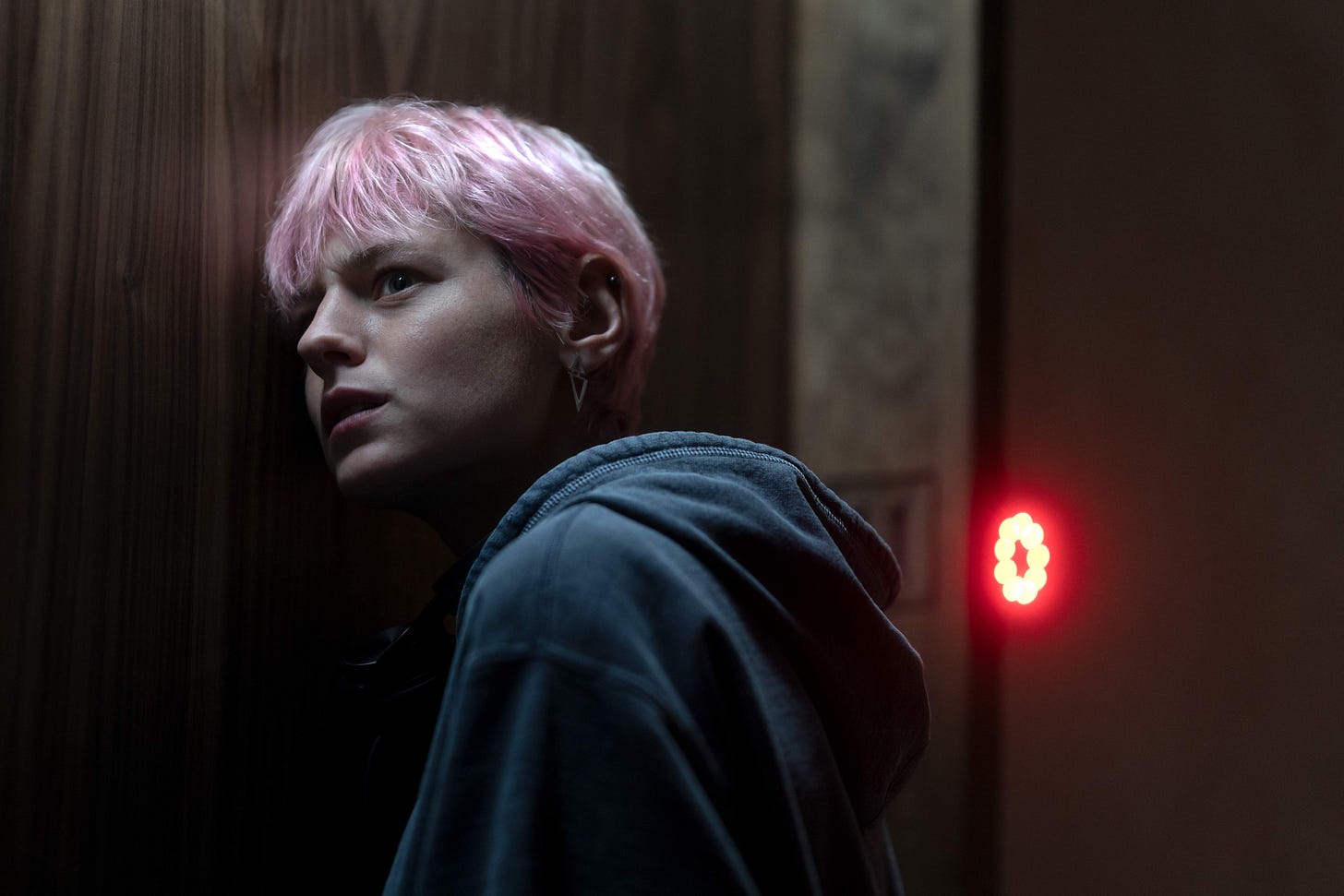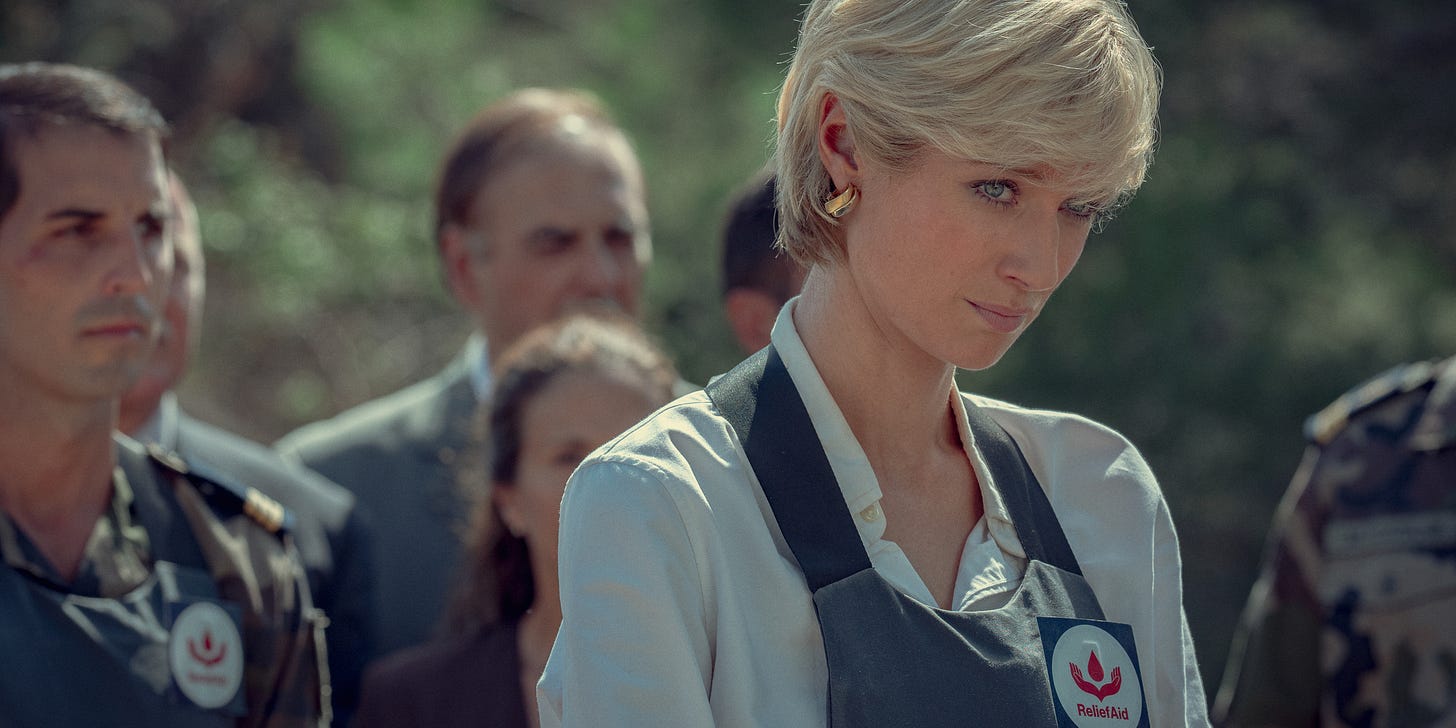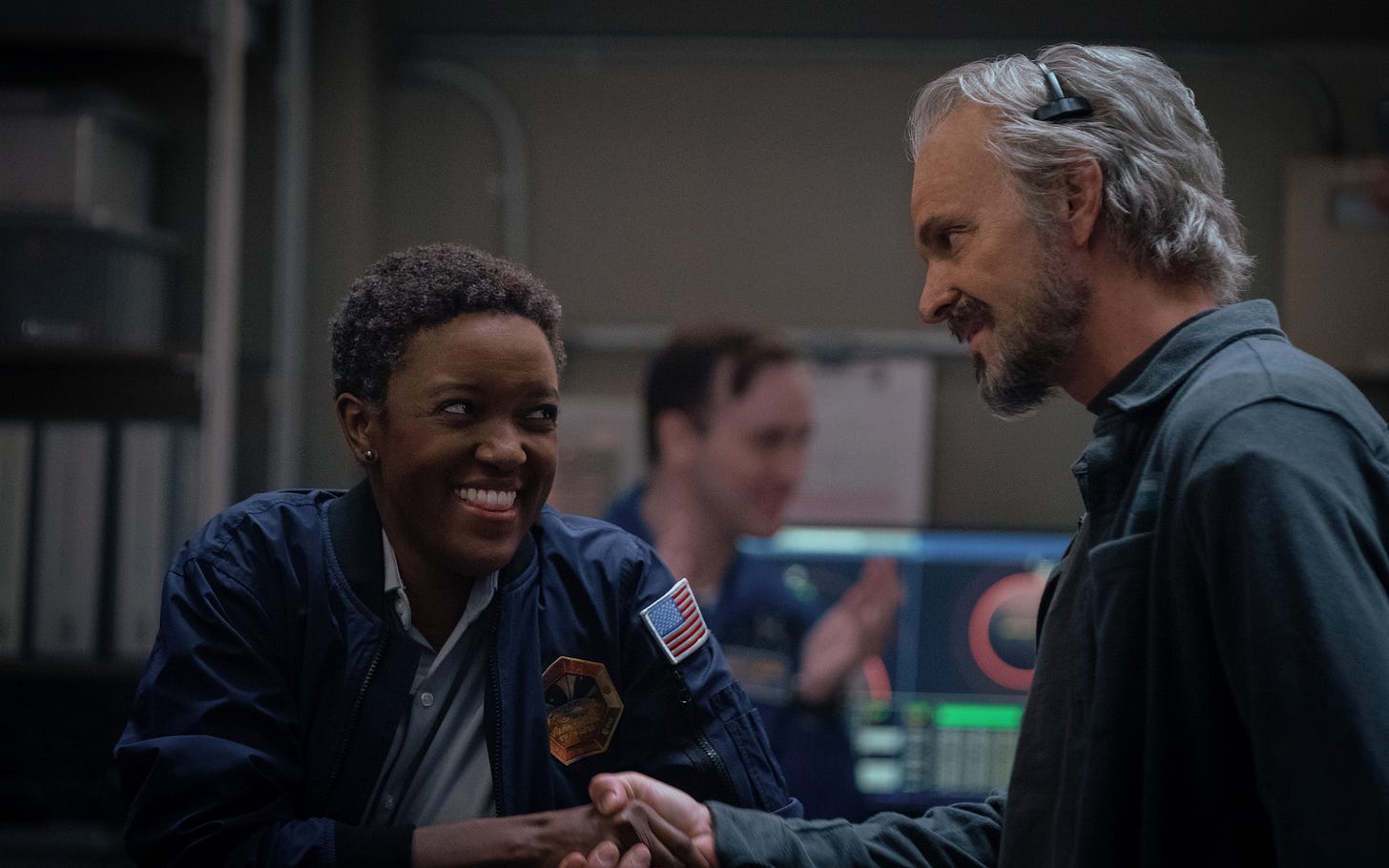Scott Pilgrim vs. the newsletter
Plus, 'The Crown,' 'A Murder at the End of the World,' 'For All Mankind,' and more
This week’s What’s Alan Watching? newsletter coming up just as soon as we say “Hi, Bob!”
When The O.C. is not just The O.C.
We are now 11 days — practically single digits! — from the November 28 release of Welcome to The O.C. Did you know that you can still preorder it right now? And that you can get a free bonus chapter immediately if you preorder?
Earlier this week, Vanity Fair published an excerpt from the chapter about Mischa Barton’s exit from the show and the death of her character, Marissa Cooper. This was perhaps the most surprising aspect of the book to report, simply because what everyone told me was so different from all the rumors at the time, which placed all the blame for this at Barton’s feet. But as you can read in the excerpt, this particular failure had many fathers (and mothers), and Barton was largely a victim of various internal and external conflicts with the show that had little to do with her.
Related, advance copies of the book have started going out to members of the press, the book’s interview subjects, etc. One of those people sent me a nice note that sums up something that I think is important to understand:
It's much more than a book about The O.C.; it's a genuinely interesting and surprisingly honest look at the TV industry and how shows come together and fall apart. Some people were so much more forthcoming than I would have expected.
The initial goal of the book was simply to tell the story of this one show. But as I began reporting it, and as more and more people proved not only willing to talk to me, but willing to be incredibly candid, I realized it was adding this extra layer. It is discussing specific events from the run of a specific show, like Barton’s tumultuous exit and the way it ultimately doomed The O.C. But the themes of the book, and a lot of the individual incidents described in it, could apply to so many other shows, particularly from that era. Whether you care about The O.C. or not, you will learn a lot about how TV shows get developed, how the relationship between creatives and executives can go well or go poorly, the struggle to keep generating story over time, the joys of instant success and fame and then the frustrations when those things go away, co-workers going from best friends to hiding from one another, etc. It’s a universal tale in many ways, even if certain details — like Josh Schwartz and Stephanie Savage giving way too much credence to the folks at Television Without Pity — are unique to this one project. And I think if you care enough about TV to subscribe to a newsletter like this, you’ll get something out of the book, whether or not you know all the rituals of Chrismukkah.
Here endeth the hard sell. Maybe next week, I’ll just empty out my O.C. screencaps folder?
What’s Alan writing?
We’re in the home stretch of the last genuinely busy TV period of 2023, and possibly well into 2024. (As it is, I didn’t get a chance to finish watching all the screeners of Apple’s new Monarch: Legacy of Monsters. The two I saw seemed… fine? But I’m also not a huge Godzilla or King Kong guy, and Kurt Russell doesn’t pop up until the very end of the second one, so it’s possible I stopped right as it was getting good.) The rest of November will be relatively busy, December will be largely devoid of notable premieres, and then everyone’s going to tap dance until the Hollywood production machine gets fully back up to speed now that the SAG-AFTRA strike is over. I wrote about why viewers won’t feel the impact of the end of the dual strikes until late winter, if not sometime in the spring.
Brit Marling and Zal Batmanglij’s Netflix series The OA was so aggressively weird that it seemed designed to be greeted with either adoration or eye rolls, and nothing in between. Despite my general affinity for odd TV like The Leftovers, I fell into the latter camp on that one. So I was very pleasantly surprised by the duo’s new FX on Hulu series, A Murder at the End of the World. It’s the two of them showing they can play things entirely straight and commercial with a mash-up of Agatha Christie and Lisbeth Salander, and it’s very entertaining.
After a premiere that had to do a lot of setup about the world, the characters, the tone, and the anatomical quirks, The Curse gets much more eventful — and uncomfortable — with its second episode. Here’s my recap.
Goodbye, England’s rose
The fifth season of The Crown ran headlong into the dual-edged sword of Charles and Diana’s divorce. On the one hand, this was by far the juiciest real-life material that Peter Morgan had been able to adapt to that point. On the other, it was also by far the story where most of the details were already known to the public. The Crown had previously specialized in taking its viewers behind the curtain of events they thought they already knew; last season was Dominic West and Elizabeth Debicki hitting story beats that even casual royal observers already knew well.
But even factoring in that problem, on top of West being way too dashing to be playing Charles, Season Five was substantially better than the four Season Six episodes that Netflix released yesterday. As I wrote in my review, Morgan’s increasing identification with the royal family means he treats Dodi Fayed and, especially, his father Mohamed Al-Fayed, as cartoon villains. And it also leads him to essentially rewrite his excellent script for The Queen so that the man of the people exhorting Queen Elizabeth to deliver a public statement about Diana’s death is not Tony Blair, but… Charles?!?
West, Debicki, and Imelda Staunton are all tremendous, but the whole thing suggests that Morgan might have been better off ending the series before we got to this incredibly familiar, even more incredibly delicate, phase of the story.
Scott Pilgrim vs. the revival
One of the great movie theater experiences of my lifetime came in 2010 at San Diego Comic-Con, when I got to attend a packed early screening of Scott Pilgrim vs. the World. The film played like gangbusters to its target demographic, and afterwards, Metric came out to play a set. It was the kind of night where, with the deck stacked totally in the movie’s favor, it seemed obvious that Scott Pilgrim was about to become a massive hit. Instead, it was greeted with confusion, or outright indifference, by the non-fan demographic, and was written off as another example of how Comic-Con hype doesn’t always translate at the box office.
Today brings the Netflix premiere of Scott Pilgrim Takes Off, an eight-part anime, written by Scott’s creator Bryan Lee O’Malley, and by BenDavid Grabinski, and it’s… well, it’s very hard to talk about in advance, because of the things O’Malley and Grabinski have added or changed from the comic book and film. I will say that I enjoyed the hell out of it, but I am, again, in the tank for this property by now. And if you are like me in that regard, I strongly suggest either watching the first few episodes as soon as possible, or staying off social media until you do.
Because of the matter of what is and isn’t a spoiler, I opted against doing a traditional review. Instead, I spoke with Scott Pilgrim vs. the World director Edgar Wright about how he got the film’s entire main cast to reprise their roles for the show, and about the movie’s evolution from bomb to cult classic. And on Monday morning, I’ll have a long, spoiler-filled post-mortem interview with O’Malley and Grabinski. So watch this space like always.
If you’ve already started watching, you can discuss in the comments, but maybe this is a topic better saved for a more robust and detailed conversation on Black Friday?
For All Mankind recaplet: “Have a Nice Sol”
I’m still figuring out how I’ll juggle this show and Fargo Season Five after that premieres next week(*). But FAM has this space all to itself today, so let’s talk about “Have a Nice Sol.”
(*) Before you ask if I’ll be reviewing Fargo, or if I have any advance thoughts on it, say it with me, campers: Rolling Stone is now publishing most reviews on the day a show premieres, or one or two days early at most.
As usual, we split our time about evenly between space and Earth. Lots of notable doings on home turf, from Margo getting caught up in an apparent Soviet coup of Gorbachev (with the show veering ever closer into Americans territory) to Kelly and Aleida getting very drunk together after their respective careers seem to be at a crossroads. But as usual, the show’s heart is off on another planet. The episode gives us a more thorough tour of Happy Valley — everything other than the secretive North Korean area, where Lee, the first man on Mars, seems to be treated by his countrymen as a figurehead in need of close monitoring — and uses the arrival of Dani and Miles to dramatize how the concept of Upstairs, Downstairs can be applied to the Red Planet. As I said last week, Toby Kebbell is pretty bland as Miles, but the sheer harshness of his existence as an underground dweller who’s not making nearly as much money as he expected — and the contrast between his terrible life and how sweet Dani and Ed have it up on the surface level — works effectively for now.
And the plight of guys like Miles sets up our first piece of conflict between old pals Dani and Ed. He has no sympathy for the low-level Helios employees, viewing them as cold-hearted mercenaries who deserve whatever lousy treatment they get. (Never mind that Ed himself works for Helios, and must make exponentially more for his work than Miles does.) Dani, long the more empathetic and sensible one, recognizes that an unhappy workforce is bad for any office, but especially one in such hostile territory, and she goads Ed into fixing the communications satellite so people like Miles can more easily communicate with their loved ones back on Earth. Dani, as usual, is right, but it’s already clear that Ed is going to be as much of a stubborn pain in the rear as he’s always been.
But honestly, this one featured music by The Strokes and Gorillaz, and it had Kelly quoting The Right Stuff by saying, “No bucks, no Buck Rogers.” Regardless of anything else in the hour, that’s an A+ right there.
That’s it for this week! What did everybody else think?










As soon as the introductory exposition included the words "base scrip", it was very clear where FAM is headed. Wonder what the chances are we get Ed's head on a pike by episode 10?
I forgot Gorbachev is still in charge in this universe until the crowd was shouting his name, but the way they built that scene, with the sirens barely in the background, and especially the ballet on all the channels (famously what happened during the real-life Gorbachev attempted coup), created a real sense of doom. That was nicely done.
Hey Alan, quick question: I want to get my teen a copy of TV(The Book) for Christmas. Do you and Matt have a preferred vendor for it? I want to support you both as best as possible.